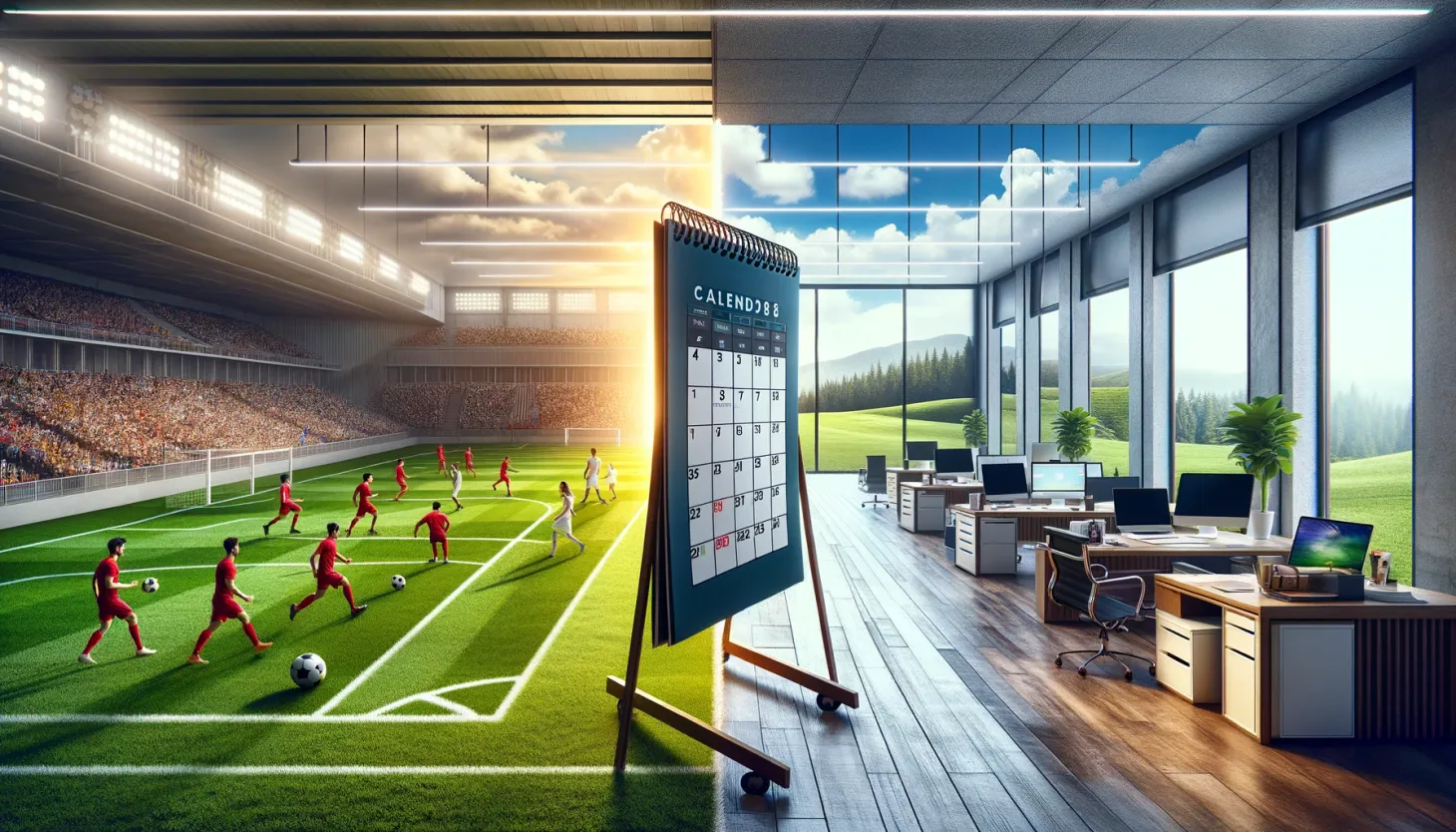International Generalist #2: becoming a better manager, delegation, environmental design, Texas BBQ
What Will Smith, Matt Mochary and my former cleaning lady all have in common.

Welcome! This is International Generalist, edition 2: your bi-weekly newsletter about self-optimisation, entrepreneurship and all things international.
Today, we’ll take a look at a fantastic resource for all managers, delegation, environmental design, and Texas BBQ.
Let’s dive in.
[1] The Ultimate Manual To Become A Better Manager
Sometimes, the right book finds you at the right time.
This one, I wish would’ve found me 6+ years ago, when we first started Linguedo.
The book’s called “The Great CEO Within” and written by Matt Mochary. Matt is the (self-proclaimed) world leading CEO coach and has worked with 100s of CEOs in his career. He then distilled these experiences into a 135-page, easy-read, ultimate manual for managers.
It was so good that I started reading it again four weeks after finishing it.
A few takeaways:
Top Goal Method: be clear about your one top goal. Not two, not three - one. Once you have clarity on that ONE top goal, spend 2+ hours per day working on it deeply. This focus, paired with lack of distraction, will get you there much faster than you’d think.
RAPID Decision Making Framework:
When a decision needs to be made, the person addressing the issue writes up the issue and its proposed solution. Then, five types of people are included:
Responsible: the person initiating the decision
Agree: people who have to agree with the decision (e.g. legal to ensure you’re not breaking the law)
Perform: those who ultimately perform the work related to the decision, and should be heard
Input: people whose input should be consider
Deciding: the person that makes the decision (type 1 = CEO, type 2 = somebody else - see below)
Then, R solicits input, gathers it, writes it up in a a decision document. A meeting with the decision maker is scheduled, who reviews the decision, asks questions, and decides.
This makes for a highly effective process ensuring that everybody involved will be involved.
Type 1 vs Type 2 decisions:
Type 1: decisions that are (nearly) irreversible - they should be thought out well, with great deliberation
Type 2: decisions that are reversible - they should be implemented and executed quickly; if something doesn’t work out, then you can simply reverse the decision
Most decisions are type 2 decisions, but we often treat many of them as type 1 when they really aren’t. Realize this, and start deciding faster.
There are so many more, and I can just scroll to any page in the book to find something valuable.
If you’re a manager, read the book.
The best thing: it’s not just valuable, it’s also free. The Google Doc is right here, provided on his website himself. Not a pirate copy.
[2] Why You Should Delegate Stuff, According To Will Smith And My Cleaning Lady
Mark Manson recently came on the Tim Ferriss Show, and when two of my favourite content creators on the internet unite, I had to listen. The whole conversation is insightful yet funny, but one thing stuck out: Mark’s experience with Will Smith when writing his biography together.
On the topic of delegation, Will says (paraphrased):
“I’m world-class at one thing: acting. Therefore, I should maximize my time spent acting, so the world can benefit from my world-class ability. Everything else, I should delegate. Not only does this maximize my time doing things I’m world-class at, I’m also giving others the opportunity to do the things that they’re world class at. My chef is world-class at cooking; if I cook my meals myself, I’m taking away his chance to be world-class.”
The first insight is intuitive; the second one isn’t: doing things yourself that you aren’t very good at will take away others’ ability to do things they’re very good at.
Looking back, I had one experience with a former cleaning lady, Mariana (who also acted acted as a “substitute mother” for our shared flat of three guys in their 20s). When chatting over coffee, she told me: “I think what you guys do is awesome, and you should keep doing that. You’re good at it. I just really enjoy cleaning - so let me do that. Every person should do what they enjoy doing and what they’re good at.”
Enter Matt Mochary from [1]. He - of course - has a framework for this too, and breaks it down into four zones:
- Zone of Incompetence: you’re not good at it, so outsource if it doesn’t give you joy (fixing your car, or in my case, cleaning)
- Zone of Competence: you’re capable of doing it, but others are as good as you, so outsource if it doesn’t give you joy (e.g. filing paperwork)
- Zone of Excellence: you’re good at it, but you don’t love it - a dangerous spot, because people will ask you to keep doing it (since you’re good). Move away from these activities, even though it’s hard.
- Zone of Genius: you’re uniquely good in the world at these things, and time and space disappear when doing them. Do these things. Cut everything else.
Do things that you’re world-class at and/or give you joy. Give others the opportunity to do the same and cut everything else.
The conversation with Mariana also showed me: just because someone’s a janitor doesn’t mean they cannot offer wisdom! Every person has a unique perspective and deserves to be heard. If she reads this - bless her heart.
[3] Change Your Environment, Change Your Behaviour
I recently published my Not-To-Do List for 2023 (not-so-shameful plug, read it here).
A recurring pattern was the topic of environmental design: change your environment, change your behaviour.
Examples were charging my phone outside my bedroom, turning off Slack + Email, and putting my phone out of sight - all examples of eliminating distractions and temptations from your environment.
I then noticed that I kept forgetting taking my supplements on time or at all.
Why?
Because my flatmate cleaned up the kitchen (bless her heart too), and put them into a drawer.
Out of sight - out of mind. So I took a page out of my grandmother’s playbook and started putting my supplements for the next day in an obvious space where I wouldn’t forget to take them. I might even get me one of those pill containers with the morning/mid-day/evening section.
This got me thinking: how else can I shape my environment to encourage positive behaviour? Here are a few adjustments that you can try too:
- Bright lights in the evening are bad. Get lamps or candles with dim lights instead, and fall asleep better.
- Sugar is bad, too. It’s easier not to consume sweets if you don’t have any at your house in the first place.
- So is alcohol. I always have a crate of non-alcoholic beer at home. Does the trick when you really crave a beer, but you still don’t consume alcohol. Everybody wins.
There’s so much more you can do. This doesn’t even scratch the surface.
But this newsletter is already quite long, and I don’t want you to spend that much time reading, but actually working on becoming a more effective person.
So think about it: what are behaviors that you’d like to encourage in yourself, and how can you change your environment to encourage these behaviors?
[4] The Fascinating World of Texas BBQ
I recently watched a 30-min documentary about Goldee’s Barbecue, Texas’ #1 ranked BBQ restaurant. Utterly fascinating how much love, work and dedication people give to the perfect brisket. In fact, so perfect, that the first guests arrive before 7am and crack open beers waiting for the restaurant to open. It’s wonderful to watch. I may have to take a detour to Fort Worth next time I’m in the US.
Writing this was fun. I hope so was reading it.
To recap:
- Read the “Great CEO Within” book if you’re a manager. Just do it. It won’t take long.
- Do things that you’re world-class at and/or give you joy. Give others the opportunity to do the same and cut everything else.
- Design your environment to encourage positive and discourage negative behaviors.
I’d be happy to hear your thoughts on this newsletter as well as any changes you make to your environment. So please, comment here or reply to this email - would love to know.
Thank you for reading. If you feel like this post has helped you in any way, share this with a friend and - if you haven’t done so - subscribe. I currently have 141 subscribers, so each additional one means a lot!
Much love
Dominik
Dominik Nitsch Newsletter
Join the newsletter to receive the latest updates in your inbox.


